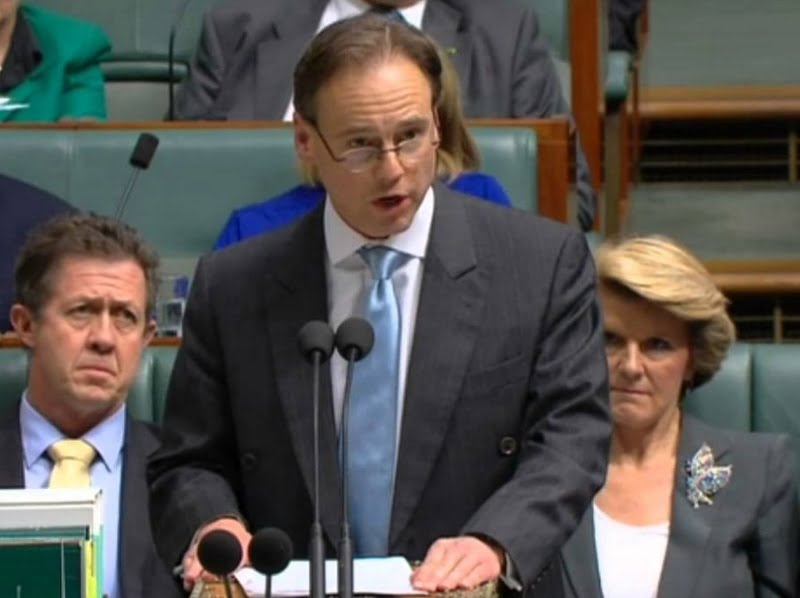Digital rights advocates are calling on Australians to opt-out of the My Health Record service after labelling the government’s approach to the digital service an “abuse of trust”.
My Health Record is an electronic health record that has been in the works for more than five years. It is currently available as an opt-in service requiring informed consent, with the government claiming that more than five million Australians now having a record.
The government recently announced that it would instead move to an opt-out model due to a low uptake of the service, with Australians given a three-month period to actively remove consent before being given an online record by default.

The three-month opt-out period will begin from 16 July.
This switch to an opt-out model has been heavily criticised by civil and digital rights groups, who have raised concerns surrounding the collection and storage of sensitive data and forcing this onto all Australians.
Australian Privacy Foundation’s health committee chair Dr Bernard Robertson-Dunn said the switch to an opt was an “abuse of trust” from the government, especially in light of the current worldwide debate surrounding data and consent following the Facebook and Cambridge Analytica scandal.
“This is a retrograde step. The government created the system as an opt-in and people made the decision to have one and consent was obtained. The government has then changed the rules to opt-out. Where is this going to step? The government is abusing the trust of the people – they created a system to do one thing and then changed it because no-one was using it,” Dr Robertson-Dunn told InnovationAus.com.
The government has said that My Health Record provides a summary of an individual’s key health information to deliver “better health outcomes for patients and their treating doctors and specialists”.
The government allocated $374.2 million over two years in the 2017 budget to fund the transition to the opt-out service. Health minister Greg Hunt said My Health Record is an important initiative.
“My Health Record provides many benefits to patients, including reduced duplication of tests, better coordination of care for people with chronic and complex conditions, and better informed treatment decisions. I would encourage each and every Australian to use their My Health Record and to speak with their healthcare providers regarding these benefits,” Mr Hunt said.
But the Australian Privacy Foundation is advising all Australians to opt-out from the service, saying that the benefits do not outweigh the potential costs and risks. Dr Robertson-Dunn said My Health Record is a “huge and risky invasion of privacy”.
“Our position comes from the recognition that privacy is a really dynamic thing and it usually depends on the benefits that you get from whatever it is that you’re risking your privacy for. If you get great benefits out of it then you might say, ‘to heck with privacy, I don’t care’,” he said.
“But if you look at what the government says, you’ll find there are only discussions about the benefits, but any system like this comes at a cost and a risk. There’s no information whatsoever from the government about the costs and risks, and we think that is not a good thing.”
A central concern is that the sensitive medical data stored as part of My Health Record will act as a “honeypot” for potential hackers and will be vulnerable to a large-scale breach. The Office of the Australian Information Commissioner has revealed that more than 100 people were impacted by the unauthorised access of My Health Records by a third-party in 2016-17.
The government has maintained that the data will be stored securely.
“The protection of patient information is critical and the My Health Record system has strong safeguards in place to protect the health data. It is also subject to some of the strongest legislation in the world to prevent unauthorised use,” a government fact sheet said.
The government has revealed that it will be launching a national communication strategy to inform Australians of the service and the opt-out period and will also be partnering with the National Aboriginal Community Controlled Health Organisation to also raise awareness.
But digital rights groups are concerned that the government will only be quietly spruiking the benefits of My Health Record and none of the associated risks and many Australians will be given an online record without even knowing about it.
“The government is not explaining the costs and risks which really concerns us, because if people are to make informed decisions they need to have the full information about this system.
“The government is not going out of its way to tell people the full extent of this system. We are not impressed with the efforts the government is making to publicise this thing,” Dr Robertson-Dunn said.
Following the opt-out process, anyone that did choose to opt-out will still be able to change their mind, but anyone that does have a record made for them automatically will not be able to have this data deleted. Instead, if someone chooses to “cancel” their My Health Record, the record will be deactivated rather than deleted.
“The government says that you can cancel it, and that implies that the record disappears, but it will always exist – it will at best be deactivated. Our mantra is that sharing health data among health professionals is a good thing but giving it to the government is not so good. When you put stuff into My Health Record it goes into the database and then the government will keep all the data that’s ever uploaded into it, way past after you die,” Dr Robertson-Dunn said.
The government will store the data until 30 years after an individual’s death.
Do you know more? Contact James Riley via Email.

